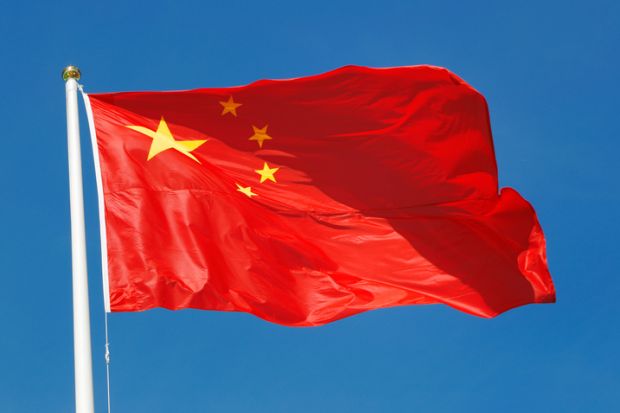As Theresa May wraps up her high-profile trade mission to China, we’re reminded that the country is set to play a significant role in the UK’s economic future.
Innovation, science-industry collaboration and technology will be key priorities for the prime minister’s delegation, and this is an area where Russell Group universities excel.
It is therefore fitting that two Russell Group vice-chancellors have been asked to join this week’s delegation. Dame Janet Beer, from the University of Liverpool, and Dame Nancy Rothwell, from the University of Manchester, are well placed to demonstrate how our existing ties with China are already reaping rewards.
The past few years have seen Russell Group universities make great strides in forging links with China across a range of disciplines and areas of activity. As a mission group, our partnership-building has been particularly focused on the China 9 (C9), an alliance of nine of the country’s leading universities.
However, collaborations that are bringing mutual benefits to both the UK and China extend to other universities and research institutes as well as to Chinese industry and business.
Some of our members, including Liverpool and the University of Nottingham, have established flourishing branch campuses on the Chinese mainland. Our universities are also promoting opportunities for UK students to study in China and learn about Chinese culture and language.
But just as significant – if not even more so – has been the flow of students and staff moving in the opposite direction.
Chinese students are choosing to come and study at a UK research-intensive university in increasing numbers and now represent the largest proportion of non-European Union students at Russell Group institutions.
Our members are also enticing more world-class Chinese nationals to join their workforce, so we can tap into knowledge and expertise from around the globe. There are currently about 2,650 Chinese staff in Russell Group universities, almost all in vital academic teaching and research roles in disciplines such as engineering, technology and mathematics.
Our member universities recognise that collaboration is fundamental to delivering excellent research by encouraging diverse approaches to address the complex global challenges that we all face.
Research and innovation are global pursuits and have the biggest impact when ideas and people are mobile across borders. Nowhere is this demonstrated more powerfully than in the case of the UK and China. Indeed, as a nation we have now moved ahead of Japan to become the second most popular partner for Chinese researchers after the US.
To give one example, last year a group of Russell Group universities – led by Queen’s University Belfast – formed a consortium with the nine engineering specialist universities in China. The consortium is now working together on projects including energy-efficient manufacturing. The partnership has created opportunities for academics from both countries to work together on specific projects and enabled new exchange programmes for students.
As we prepare for life outside the EU, this type of collaboration is set to take on even greater importance. As a nation, we will need to show boldness, imagination and ambition to forge new alliances and strengthen existing partnerships across the globe.
Russell Group universities are determined to be in the vanguard of these efforts in the crucial years ahead.
Tim Bradshaw is chief executive of the Russell Group.
Register to continue
Why register?
- Registration is free and only takes a moment
- Once registered, you can read 3 articles a month
- Sign up for our newsletter
Subscribe
Or subscribe for unlimited access to:
- Unlimited access to news, views, insights & reviews
- Digital editions
- Digital access to THE’s university and college rankings analysis
Already registered or a current subscriber? Login











